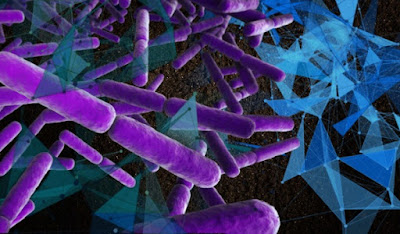Is Altruism Controlled by Microbes?
For the most part, the concept of vertical (molecules-to-microbiologist) evolution is naturalistic. This means there is no room for the Creator, purpose, or anything else. It also means that atheistic empiricism and materialism cannot explain the necessary preconditions of human experience. They cannot explain even the existence of love, compassion, anger, laws of logic, and other intangible things that people experience every day.
Even though it's illogical, materialists attempt to explain the intangible through natural means, including evolution. You've probably remarks about someone being irritable because of digestive difficulties, which may indicate unpleasant microbe activities. It is also known that ants can be zombified in a way, taken over by a parasitic fungus. So, maybe our activities are affected to some extent by those tiny bugs inside us.
Altruism, like morality itself, is a big concept, and quite a bit different than being cranky due to stomach bacteria. Some evolutionists try to explain altruism as a desire to help the group. Of course, this is complicating the question, assuming evolution is true, and also assuming that there is an evolutionary desire to help the group — neither of which can be proven scientifically. However, they still have to try and deny that our Creator gave us things like altruism; they want it to be driven by the microbes inside us.
 |
| Anaerobic bacteria, Argonne National Laboratory (usage does not imply endorsement of site contents) |
Altruism, like morality itself, is a big concept, and quite a bit different than being cranky due to stomach bacteria. Some evolutionists try to explain altruism as a desire to help the group. Of course, this is complicating the question, assuming evolution is true, and also assuming that there is an evolutionary desire to help the group — neither of which can be proven scientifically. However, they still have to try and deny that our Creator gave us things like altruism; they want it to be driven by the microbes inside us.
Altruism—selfless sacrificial behavior to help others—is a mystery to evolutionists. In a truly evolutionary worldview, there must be a naturalistic explanation for all that exists. So how did altruism evolve?
The evolutionist asserts that survival of the fittest—by selecting from an almost infinite array of randomly generated natural options—is responsible for all that exists, ever did, or ever will. And that includes not just the physical bodies of all living things but all of their abilities, instincts, intellects, and behaviors. Morality, in that worldview, is nothing more than the evolved preference of people for certain advantageous behaviors over others. Is morality a mere product of biology, perhaps even of the microbes that live inside us? A group of scientists at Tel Aviv University thinks so. They propose that bacteria in our intestines may be responsible for human altruism.To read the rest, click on "Why We Help: Do Our Microbes Make Us Do It?"